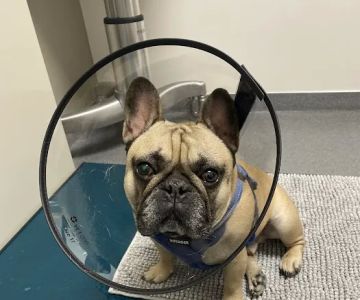- 1-Understanding-When-to-Consult-a-Specialist
- 2-Common-Signs-Your-Pet-Needs-Specialized-Care
- 3-Types-of-Veterinary-Specialists-and-Their-Roles
- 4-Real-Life-Experience-with-Specialized-Pet-Care
- 5-Choosing-the-Right-Specialist-for-Your-Pet
1. Understanding When to Consult a Specialist
Deciding when to see a specialist for your pet’s health can be challenging. While general veterinarians manage most health issues, certain conditions require advanced expertise. Recognizing when specialized care is necessary can improve outcomes and provide your pet with tailored treatment options.

5910 S University Blvd B4, Greenwood Village, CO 80121, USA
See Details1.1 The Role of a Veterinary Specialist
Veterinary specialists are experts who undergo additional training in specific areas such as cardiology, dermatology, oncology, or orthopedics. They offer in-depth diagnostics and treatments beyond general practice capabilities. Knowing when to seek their help can be vital in managing complex or chronic conditions.
2. Common Signs Your Pet Needs Specialized Care
Some symptoms and health issues indicate it’s time to see a specialist:
2.1 Persistent or Unexplained Symptoms
If your pet shows ongoing signs like vomiting, lethargy, or unexplained weight loss despite standard treatments, a specialist’s evaluation may uncover underlying causes.
2.2 Chronic Conditions Requiring Advanced Treatment
Diseases such as cancer, heart disease, or severe allergies often need the advanced care of specialists who can offer targeted therapies and monitoring.
2.3 Complex Surgeries or Procedures
When surgery involves delicate or complicated techniques, specialist surgeons ensure the highest level of precision and safety.
3. Types of Veterinary Specialists and Their Roles
Veterinary medicine includes various specialties. Some common examples include:
3.1 Veterinary Cardiologists
Focus on heart and vascular diseases, providing advanced diagnostics like echocardiograms.
3.2 Oncologists
Specialize in cancer treatment, offering chemotherapy, radiation, and novel therapies.
3.3 Dermatologists
Address skin conditions and allergies with specialized testing and treatment plans.
3.4 Surgeons
Perform advanced surgical procedures that require specialized training and equipment.
4. Real-Life Experience with Specialized Pet Care
Take the example of Max, a Labrador Retriever whose persistent coughing led his general vet to recommend a cardiologist. The specialist diagnosed a heart condition early, enabling targeted treatment that improved Max’s quality of life significantly. Stories like this highlight the critical role of specialists in complex cases.
4.1 The Impact of Timely Referrals
Many pet owners share that early specialist involvement prevented worsening conditions and costly complications. Timely referrals ensure pets receive expert care when it matters most.
5. Choosing the Right Specialist for Your Pet
Finding the appropriate specialist involves considering factors such as location, credentials, and communication style. Consulting your trusted veterinarian for recommendations is a practical first step.
5.1 Accessing Specialist Care
Clinics like Hidden Brook Veterinary provide comprehensive specialist services or can refer you to trusted experts. This support network ensures your pet’s health is in expert hands.
5.2 Preparing for Your Specialist Visit
Gather your pet’s medical history, recent test results, and questions to make the most of the specialist consultation. This preparation helps specialists tailor their care precisely.
When wondering when to see a specialist for your pet’s health, remember that early expert involvement can make a significant difference. Trust your veterinarian’s guidance and explore specialized options available through centers like Hidden Brook Veterinary to provide your pet with the best care possible.










